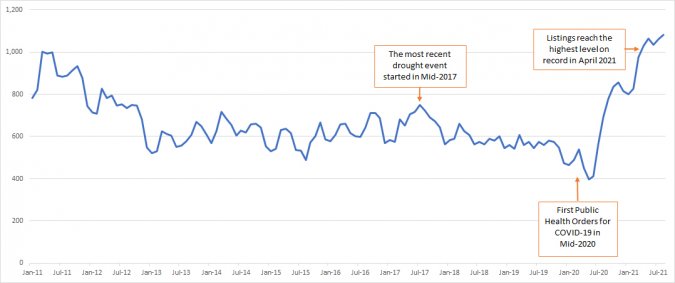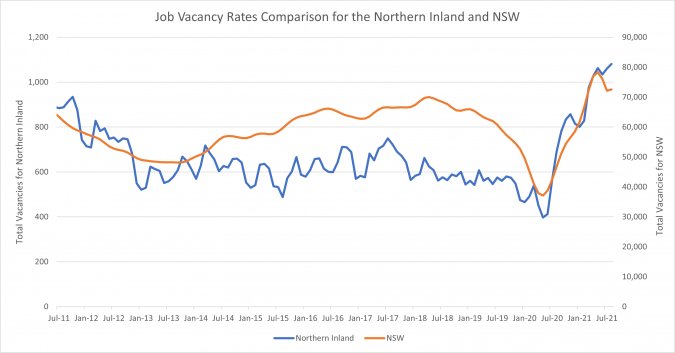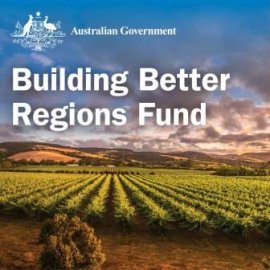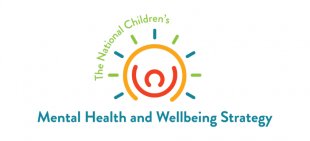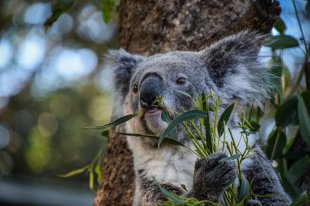-
Featured Items
-
Featured Resources
 Funding & Grants
Don't miss out on funding opportunities. Stay informed with our up to date online listings and email notifications.
Read More
Funding & Grants
Don't miss out on funding opportunities. Stay informed with our up to date online listings and email notifications.
Read More
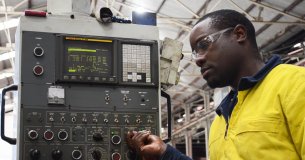 Skilled Migration
Our services help both applicants and employers, to learn more, develop plans, submit applications, and settle in.
Read More
Skilled Migration
Our services help both applicants and employers, to learn more, develop plans, submit applications, and settle in.
Read More
 Research and Analysis
Good research and analysis makes the case. How can our resources and services help your project or application?
Read More
Research and Analysis
Good research and analysis makes the case. How can our resources and services help your project or application?
Read More
 Information & Data Resources
With resources like REMPLAN, Regional Knowledge Base, and decades of data, discover how we can help your project.
Read More
Information & Data Resources
With resources like REMPLAN, Regional Knowledge Base, and decades of data, discover how we can help your project.
Read More
-
Stay InformedSubscribe to one or more of our regular email subscriptions, to be kept up to date on news and funding opportunities for the region
-
-
Our Region
- Our Region
- Regional Plan
- Regional Data
- Current Regional Issues
- Population Migration Analysis for 2016-21
- Job Vacancies Continue at All-Time High
- National Debt - What it Means for Our Economy?
- The True Value of Home Solar
- The Economic Impacts of Local Government Amalgamations
- State of the Regions Report 2014-15
- Antifragility - A different take on regional economic development
- Biohubs - Collaborative Waste Management
- Attracting New Residents
- Socio-Economic Impacts of the Murray Darling Basin Plan
- Murray Darling Basin Water Recovery
- Growing Businesses
- The Northern Inland Economy
- Geographical Overview
- Major Industry Sections
- Our Services
- Grants and Funding
-
Skilled Migration
- Skilled Migration
- Skilled Employer Sponsored Regional Visa
- Skilled Work Regional Visa (subclass 491)
- Temporary Seasonal Workers
- Designated Area Migration Agreement (DAMA)
- Helpful Information for Visa Holders
- Information for Employers
- Case Studies
- Payment Details
- Advice & Further Information
- Contact Details
- News & Events
-
Our Projects
- Our Projects
- Current Projects
- Skilled Migration
- Wool Works - Wool Training Schools
- Metal Works - Welding and Fabrication Schools
- Come On Inland
- Stories of Resilience
- Alt Brothers Beekeeping - Glen Innes
- Carelle's Toy Store - Glen Innes
- Greenhill Orchards - Arding
- Gwydir Meats - Warialda
- Kaputar Motors - Narrabri
- Moonbi General Store - Moonbi
- Sandstock - Tingha
- Sherelle Fashions - Tenterfield
- Sleepy Merino - Inverell
- Tenterfield Chamber of Toursim, Industry and Business - Tenterfeild
- The Welders Dog - Armidale
- Walcha Veterinary Supplies - Walcha
- AGCAP - Agribusiness Careers & Professions
- Northern Inland Regional Investment Profile
- Past Projects
- Digital Economy Strategy
- Business Growth Project
- Go Digital
- How to Start an Online Business
- Create Your Website Using Squarespace
- How to Edit Your Squarespace Site - Part 1
- How to Edit Your Squarespace Site Part 2
- Add a Shop to Your Squarespace Site
- Start a Blog and Find out What Customers are Searching
- 14 Tips For a Better Blog Post
- Which Social Media Platforms are Best for Your Business
- How to Use Facebook Effectively For Your Business – Part 1
- How to Use Facebook Effectively For Your Business – Part 2
- Instagram Tips for Business
- Catching Up, More Instagram & Dealing with Haters
- Getting Started with Twitter for Business
- Social Media Scheduling Tools
- How to Start an Etsy Shop – Part 1 – Research
- How to Start an Etsy Shop – Part 2 – Signup
- Online Security for Your Business
- Product Photography and Website Images: Your Guide
- 5 Tips to Improve your Productivity in your Business
- Best Online Business Resources
- How to Improve Your Communication Skills and Win More Clients
- NBN Coordinator
- Putting Power Back in the Regions
- Road Freight Study
- Town Audit Benchmarks
- Food and Wine
- Youth Survey
- Digital TV Switchover Assistance
- Northern Inland Transport Guide
- Live.Train.Work
- Northern Inland Innovation Awards
- Northern Inland Innovation Awards - 2017
- Northern Inland Innovation Awards - 2016
- Northern Inland Innovation Awards - 2015
- Northern Inland Innovation Awards - 2014
- Northern Inland Innovation Awards - 2013
- Northern Inland Innovation Awards - 2012
- Norther Inland Innovation Awards - 2011
- Prime Super Northern Inland Innovation Awards - 2010
- Prime Super Northern Inland Innovation Awards - 2009
- Northern Inland Innovation Awards - 2007
- Northern Lights Project
- NBN Smart Home
- Murray Darling Basin
- Moree Plains Business Workshops
- Namoi Investment Prospectus
- Industrial Land
- Bioenergy and Local Electricity Retailing
- Northern Inland Business Energy Assessment
- Skills for the Future
- Impacts of COVID-19 on Businesses
- Past Projects of NIRDB
- Aboriginal Employment and Enterprise in the Gunnedah Region
- Art as an Industry
- Aviation Survey
- Farm Forestry - Northern Inland Forestry Investment Group
- New England North West Film Strategy
- Northern Inland Excellence in Business Awards
- Food and Wine 2003 - 2008
- Prime Super Northern Inland Innovation Awards 2009
- Regional Business Networking Program
- Regional Leadership Course 2008
- Viticulture Strategy 2002-2003
- About Us
- Contact Us
- Other Resources
- Privacy and Legal
- Search
Back to Newsletters
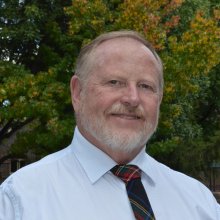
October 2021 Newsletter
Tuesday 26th of October 2021
In this Issue
- Welcome from the Chair
- Job Vacancies Continue at All Time High
- Building Better Regions Fund Projects Announced
- Recovery Package for Regional NSW
- Current Round of 491 Invitations Closing Soon
- World First for Children’s Mental Health and Wellbeing
- Can You Spot a Cool Country Koala?
- Featured Grants and Funding Opportunities
Welcome from the Chair

Dear Northern Inlanders,
It was hard to hear that part of our region has been hit again, with the devastation caused by the recent tornado in Armidale. Our thoughts are with those who lost their homes and had property damaged in such an unexpected event.
After so many incidents affecting our communities and our economy, it is time to take steps to recover and rebuild. The $730M in recovery packages recently announced by the NSW Government that are detailed below will aid in this process. However, developing and supporting place-based initiatives created by locals will also be key to our recovery.
The latest events have also made an existing challenge in our region even more prevalent. Employers in the region have been voicing their difficulties in obtaining workers for many years. This issue is even more critical now, with job vacancies in the region at all-time highs. In fact, the number of vacancies is double the level pre-Covid and 40% higher than pre-drought. It is crucial for the recovery of our economy that a range of short- and long-term initiatives are created to address this issue.
It is also important to look after our mental health, including that of our children. It is tragic that half the children that need professional mental health support in this country are not receiving it. The creation of The National Children’s Mental Health and Wellbeing Strategy is a step in the right direction, and you can read more about it below.
Regards,
Russell Stewart
Chair
Job Vacancies Continue at All Time High
The number of job vacancies advertised online for the Northern Inland reached an all-time high in April 2021. According to the Australian Government’s Internet Vacancy Index, these record highs are continuing, even during the recent public health orders in the region. The level of job vacancies in the region are now double pre-covid levels in January 2021 and are 40% higher than pre-drought levels in July 2017. The data is even more stark when considering ‘grey’ jobs that are not advertised online or at all.
This upward trend and the impacts of recent events can be seen by charting the number of vacancies for the region, as shown below. During the drought, the number of listed vacancies dropped steadily from when the drought started in mid-2017. With the increased rainfall in early 2020, the number of vacancies began to rise. Then in the middle of 2020, the sudden effect of the first public health orders for COVID-19 saw vacancy levels drop to an all-time low, with only 400 jobs listed online.
With the reduction of public health orders in late 2020, combined with continuing recovery from the drought, the number of job listings increased quickly, reaching pre-drought levels by September 2020. Since then, it has continued to grow to record levels, reaching an all-time high in April 2021, with over 1,000 job vacancies. Although listings decreased in line with the latest public health orders, levels have remained high and reached the highest ever levels in August.
The total number of vacancies in New South Wales also shows a similar trend, as illustrated below. However, the impact of the drought is not as prolonged, with the state total not dropping until almost two years after the Northern Inland.
For some, an all-time high for job vacancies is good news. It provides job seekers additional choices, and it is a positive factor for attracting new residents to our communities. The top 5 categories of advertised vacancies for our region in September 2021 were Professionals (Health, Social, Welfare, Business, Engineers), Labourers, Technicians and Trades Workers (Automotive/Engineering, Food Trades, Construction), Clerical and Administrative workers and Community and Personal Service Workers (Carers, Hospitality). The lack of work in regional areas has been a long-held misconception, and objective data such as this can help dispel these myths. However, these large vacancy numbers mean something different for employers. Instead of being a good thing, it signifies an ongoing challenge for our region.
Our region’s employers have long been voicing their concerns about the inability to source skilled and unskilled workers. Being unable to fill vacant positions impacts their ability to grow and sometimes even survive, greatly restricting the capacity of our region’s economy. The increased number of job choices for prospective employees creates even greater competition for employers to attract workers from the already limited pool of workers. Many employers have been seeking staff for so long they have given up on advertising the position. Jobs such as these and others not advertised online are not included in the job vacancy data, as it relies on the number of jobs advertised online. Therefore, the number of vacancies in our region is even higher than these numbers suggest.
Job vacancy rates at these record highs indicate the pressing need to develop initiatives to address them. Short- and long-term programs will need to be developed utilising a range of measures, including re-skilling and up-skilling current residents, availability of training courses, School-based training, attracting new residents, and appropriate Skilled Migration programs. Further barriers including housing shortages also need to be addressed. How this is done and ensuring it aligns with the needs of employers and communities in the region will be critical for the future development of our regional economy.
Building Better Regions Fund Projects Announced
The Australian Government has announced funding for 298 local infrastructure and community projects under the Building Better Regions Fund Round Five. A total of $300 million of support has been announced, an additional $100 million above the original commitment. The latest round of funding brings the total funding provided through the Building Better Regions Fund to $1.38 billion across nearly 1,300 projects.
The funding program is divided into two streams, infrastructure, and community projects. In this round, $293.9 million will be provided to 197 infrastructure projects, and $6.1 million to 101 community projects.
Four projects were successful in the Northern Inland, with a total grant value of $5,857,549.
Upgrade of the Liverpool Plains Regional Water Supply
By Liverpool Plains Shire Council
Grant Value: $5M
Project Value: $37.9M
The project will construct water supply infrastructure to improve water availability, quality and security to Quirindi, Werris Creek and Willow Tree.
Inverell Regional Livestock Exchange Development Stage 2 Project
By Inverell Shire Council
Grant Value: $631,000
Project Value: $1,262,000
The project will upgrade the facilities of the Inverell Regional Livestock Exchange
Creating Capability & Confidence for Community Champions
By Glen Innes Severn Council
Grant Value” $154,710
Project Value: $154,710
The project will deliver leadership development program across rural areas in New England to enhance participants’ leadership capacity and encourage community cohesion.
A Skill Focused Audit for Regional NSW – Understanding Employment Gaps
By The McKell Institute
Grant Value: $71,839
Project Value: $143,679
The project will research and identify skill shortages, skill surpluses and service gaps in regional New South Wales.
Recovery Package for Regional NSW
The NSW Government has announced a $200 million recovery package for regional NSW, and a $530M tourism recovery package to aid in the recovery of the economy.
The recovery pacakge for regional NSW will create new jobs and support events, shows and festivals to boost tourism. The package includes:
- $20M Regional Events Acceleration Fund Round Two
- $5M Country shows support package
- $25M Reconnecting Regional NSW: Community Events Package
- $40M for priority regional infrastructure projects
- $80M of initatives yet to be announced
“This package will deliver long term support and certainty for businesses as the state reopens, tourism rebounds and investors eye new opportunities in the bush,” said Deputy Premier and Minister for Regional NSW Paul Toole. ”The package includes $25 million to help regional councils stage events such as festivals that help drive tourism and allow locals to reconnect.”
“Immediate financial support will also be provided for country shows to be held in 2021-2022. Country shows have been disrupted by drought, bushfire, floods and COVID-19 and the $5 million we are announcing today will help agricultural show societies come back bigger and better than ever, in the lead up to the 2022 Royal Easter Show.”
The funding includes a second round of the successful Regional Job Creation Fund and the Regional Events Acceleration Fund in early 2022. Successful projects from the first rounds are expected to be announced in the coming weeks, which will help businesses create jobs and encourage visitation to regional areas.
The tourism and events recovery package includes:
- $250 million for the expanded Stay & Rediscover scheme providing a $50 voucher to all NSW adults to redeem at accommodation premises across NSW.
- $150 million to support the recovery of major event activity across the state including $50 million for a Regional Events Package to support major events, festivals, agricultural shows and community events across the regions.
- $60 million for an Aviation Attraction Fund to incentivise international airlines to re-commence flights to Sydney.
- $6 million to bring business events back to the city.
- $50 million for the CBDs Revitalisation Program to support events and activations in CBDs across Greater Sydney and surrounds.
- An Event Saver Fund to provide immediate support to organisers if events are cancelled or disrupted by any public health orders during the 2021-22 summer.
- $25 million for the Festival Relaunch package – to stabilise established commercial and not-for-profit festivals, big and small, so they can program with confidence into 2022/23.
- $10 million for a Recovery Marketing Campaign including an extension of the successful roadtrips campaign launched in 2020
Current Round of 491 Invitations Closing Soon
The current round of Registrations of Interest for 491 Visa nomination from the NSW Government will close this Sunday the 31st of October. Anyone who wishes to apply for a 491 Visa in NSW must now receive an invitation to apply from the NSW Government through this process before submitting a full application for nomination to the relevant RDA.
While we cannot provide any advice regarding this invitation process, further information about how to register your interest with the NSW Government and the online form is available on the NSW Government’s website. We also recommend reading through their frequently asked questions about the ROI process (this page has information for 190 and 491 Visas).
This is the second of four rounds of registrations of interest in the 2021-22 financial year, with two more rounds planned for January and March 2022. Registrations of interest must be submitted during these rounds, even if the form is available. Applicants that were not successful in the last round may submit a new registration of interest in this round.
Although restrictions in NSW are gradually decreasing, our office remains closed to visitors for our staff's safety. While we appreciate it can sometimes feel easier to talk face-to-face, we are unable to make exceptions. Our Skilled Migration Officer, Gary Fry is still available by phone on 6771 0700 or by email at migration@rdani.org.au, and can provide you with the same support that you would receive during an appointment.
World First for Children’s Mental Health and Wellbeing
Tragically, more than half the children that are experiencing mental health challenges are not receiving professional help. Seven out of ten of the most common presentation to paediatricians are for mental health. With half of all adult mental health challenges emerging before the age of 14, it is crucial they get the support they need.
The National Children’s Mental Health and Wellbeing Strategy, created by the National Health Commission, is the first of its kind in the world and outlines a strategy to provide children with the support they need. The strategy provides a framework to guide the development of a comprehensive, integrated system of services to maintain and support the mental health and wellbeing of children aged 0-12 and their families.
“To ensure that every child has the opportunity to grow up in a healthy and supportive environment that helps them, and their families and communities, to thrive, we need a mental health and wellbeing system that is well-designed, comprehensive, and nationally consistent.” Said Minister for Health and Aged Care, Greg Hunt. “This strategy shows us how, and will be crucial to our current ongoing reform of the mental health and suicide prevention system. It is about ensuring the best for our children at each and every step and I’m honoured to launch it.”
Through four focus areas, the strategy outlines the requirements for an effective system of care for children:
- Family and Community
- Service System
- Education Settings
- Evidence and Evaluation
Importantly, several key priorities identified in the strategy received funding in the 2021-22 Budget, which provided a record $2.3 billion for the National Mental Health and Suicide Prevention Plan aimed at transforming Australia’s mental health system. Specific initiatives dedicated to supporting the mental health and wellbeing of children and their parents and carers include:
- $54.2 million to create new Head to Health Kids mental health and wellbeing centres for children up to 12 years, in partnership with the state and territory governments.
- $42.3 million to support access to parenting education and support, to build parenting strategies and help parents to identify problem behaviours early.
- $26.8 million to support Kids Helpline and meet the increased demand for services.
- $47.4 million for perinatal mental health initiatives.
- $111.4 million to allow family members and/or carers to access up to two of a patient's available Medicare-subsidised psychological therapy sessions, and to expand access to group sessions where appropriate.
“This is one of the most important and meaningful and significant pieces of work we have done at the Commission,” said National Mental Health Commission CEO Christine Morgan. “This Strategy proposes a fundamental, cultural shift in the way we think about the mental health and wellbeing of our children, including a change in language and the adoption of a continuum-based model of mental health and wellbeing.”
The National Children’s Mental Health and Wellbeing Strategy is available on the National Mental Health Commission’s website.
Anyone experiencing distress can seek immediate advice and support through Lifeline (13 11 14), Kids Helpline (1800 55 1800), or the Government's digital mental health gateway, Head to Health.
Can You Spot a Cool Country Koala?
Granite Borders Landcare, Gwymac Landcare and Northern Tablelands Local Land Services are working together with landholders to address the shortage of reliable information on Koala populations in the Northern Tablelands.
The Cool Country Koalas project, supported by the Australian Government’s Bushfire Recovery Package, will collect data on the local population, including where they live, what habitat they prefer and what threats they face. Along with gaining a greater understanding of the local Koalas, the project will also plant native vegetation and implement weed control programs on selected Travelling Stock Routes, where Koalas are known to be. In addition, arboreal koala drinkers are being installed, reducing the distance for koalas to travel to access water and their exposure to threats such as traffic and wild dogs.
The Cool Country Koala team are seeking assistance from the community to help record koala sightings. If you spot a koala, you can provide information by logging your sighting on the OZAtlas App for iPhone or Android. Alternatively, you can call Northern Tablelands Local Land Services on 02 6770 2000, Gwymac Landcare in Inverell on 02 6721 1241 or Granite Borders Landcare in Tenterfield on 02 6736 3500.
Featured Grants and Funding Opportunities
Below are some featured grants and funding opportunities from the multitude of open grants listed in our Grants and Funding Opportunities Database on our website. Our website is updated weekly with new listings and updates and all are applicable to our region, so it is a great resource if you are looking for funding for a specific project.
You can also sign up to our free Business and Infrastructure Funding Opportunities and the Community Grants and Award Programs newsletters through the simple form located in the footer of our website, www.rdani.org.au, to receive monthly summaries of current grants.
Infrastructure Grants 2021-22
Next Round Opens: 1st of November 2021
Next Round Closes: 22nd of November 2021
Value: $10,000 to $300,000
Run By: NSW Government
The NSW Government offers grants to communities across NSW to support the building, renovation and fit-out of infrastructure. Funding is available for arts and cultural infrastructure, sport and recreation infrastructure and projects that assist communities with essential infrastructure and disaster readiness.
Infrastructure Grants can be used toward the costs of construction, alteration, renovation, completion and fit-out of buildings and community infrastructure in the following categories:
Arts & Culture: $50,000 to $200,000 available per project
Community Infrastructure: $10,000 to $200,000 available per project
Disaster Readiness: $10,000 to $200,000 available per project
Sport & Recreation: $50,000 to $300,000 available per project
Workplace Legal Advice Program
Closes: Ongoing
Run By: Fair Work Ombudsman
The Workplace Legal Advice Program provides eligible employers and employees with free independent legal help to deal with workplace issues arising from the coronavirus outbreak.
Eligible employees can get advice about issues including:
stand downs from work
changes to pay, hours, duties or location of work under their employment contract
COVID-19 vaccination workplace problems where their employer has mandated vaccination for the employee.
Eligible employers can get advice on issues like:
standing down employees from work
flexible work arrangements
options to manage their workforce
requiring COVID-19 vaccinations in the workplace.
Law firms with specialist workplace experience provide the advice. It is free and confidential.
Stronger Communities Programme Round 7
Closes: 3rd of December 2021 for Parkes Electorate, 26th of November for New England electorate.
Value: $2,500 to $20,000
Run By: Australian Government Department of Infrastructure, Transport, Regional Development and Communications
The Stronger Communities Programme aims to improve local community participation and contribute to vibrant viable communities.
Round 7 will provide each of the 151 Federal electorates with $150,000 to fund small capital projects. A maximum of 20 projects will be funded in each electorate, with successful projects receiving a grant between $2,500 and $20,000.
Federal Members of Parliament (MPs) identify potential projects and invite applications from their electorate.
Expressions of interest for:
- Parkes Electorate need to be submitted to Mark Coulton MP by the 3rd of December.
- New England Electorate need to be submitted to Barnaby Joyce MP by the 26th of November.
If you are invited to apply by your MP, you will have until the 19th of January 2022 to submit your application.
ABC Trailblazers 2022
Closes: 10th of November 2021
Run By: ABC
Trailblazers is an opportunity for people, aged from 18 to 28 who are driving positive social change projects in their regional communities and to have their work celebrated nationally.
Individuals and groups of up to three, aged 18-28, who are initiating projects that create positive change in their communities can apply. They want to hear from people with a commitment to making regional Australia even better, from community leaders to social entrepreneurs, advocates to event organisers.
Successful applicants receive a broad range of support that includes having their story told on the ABC, exclusive access to the Trailblazer Development Fund and mentoring programs to help empower young regional leaders to share their stories and build their leadership capacity.
Related Pages







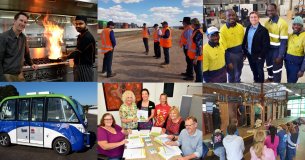 Latest News
Latest News
